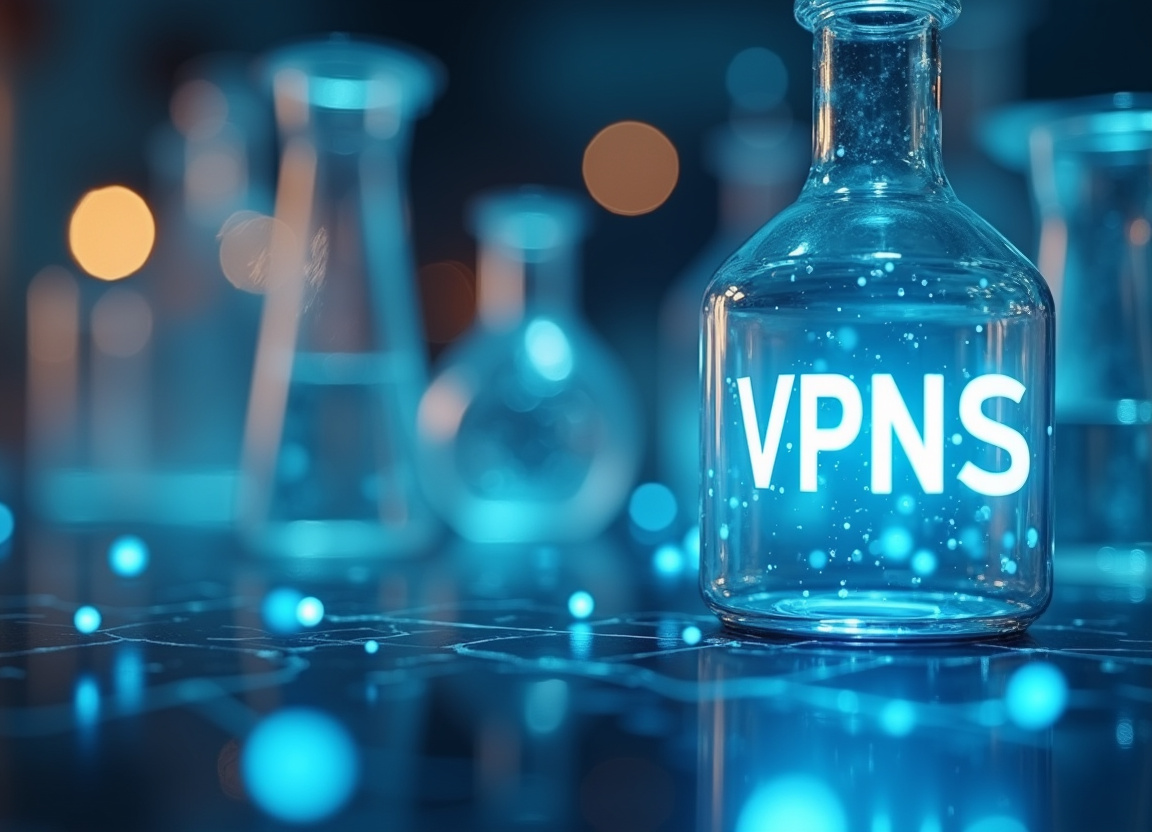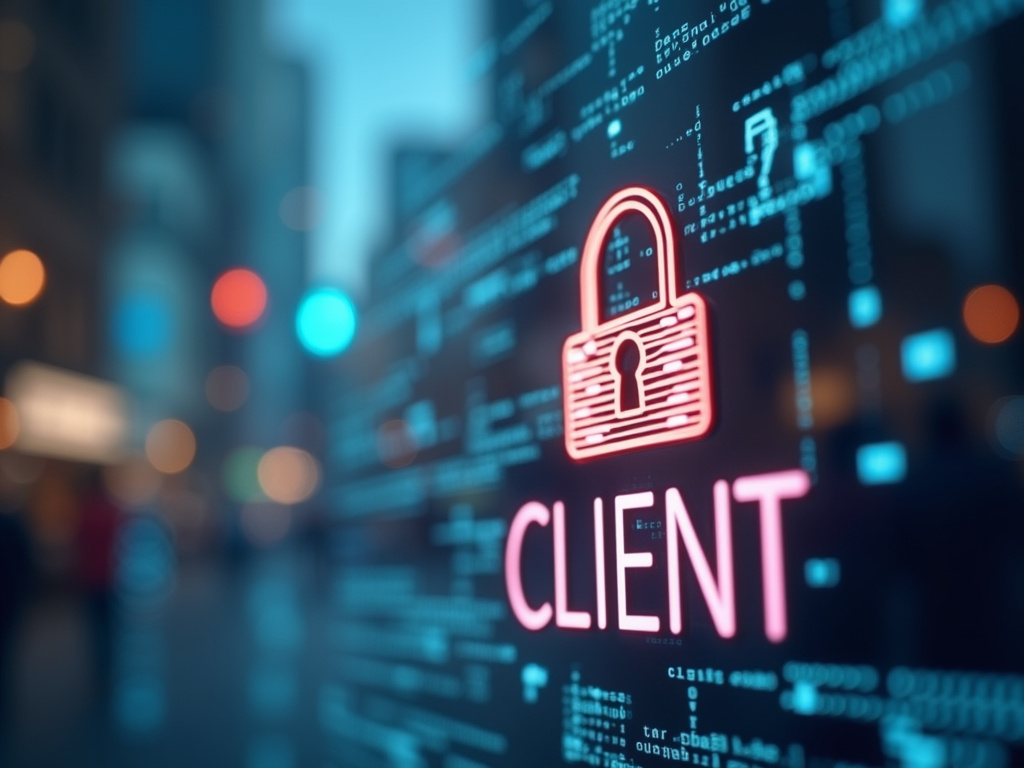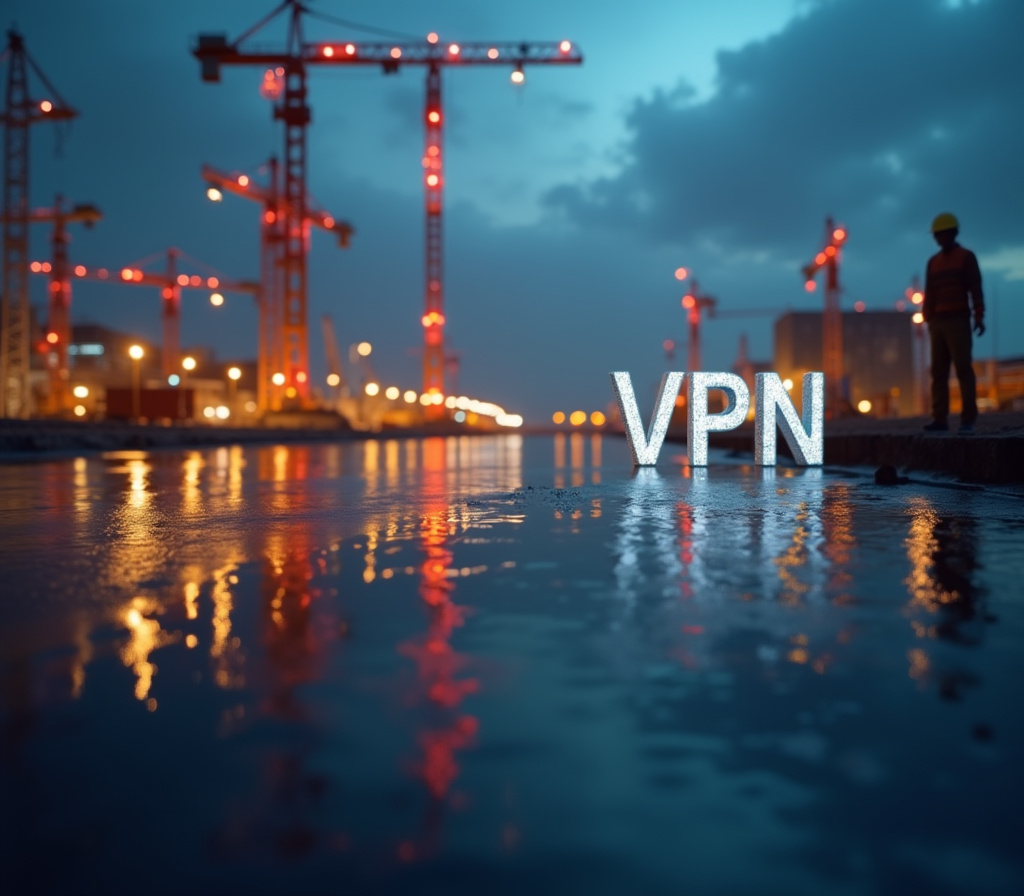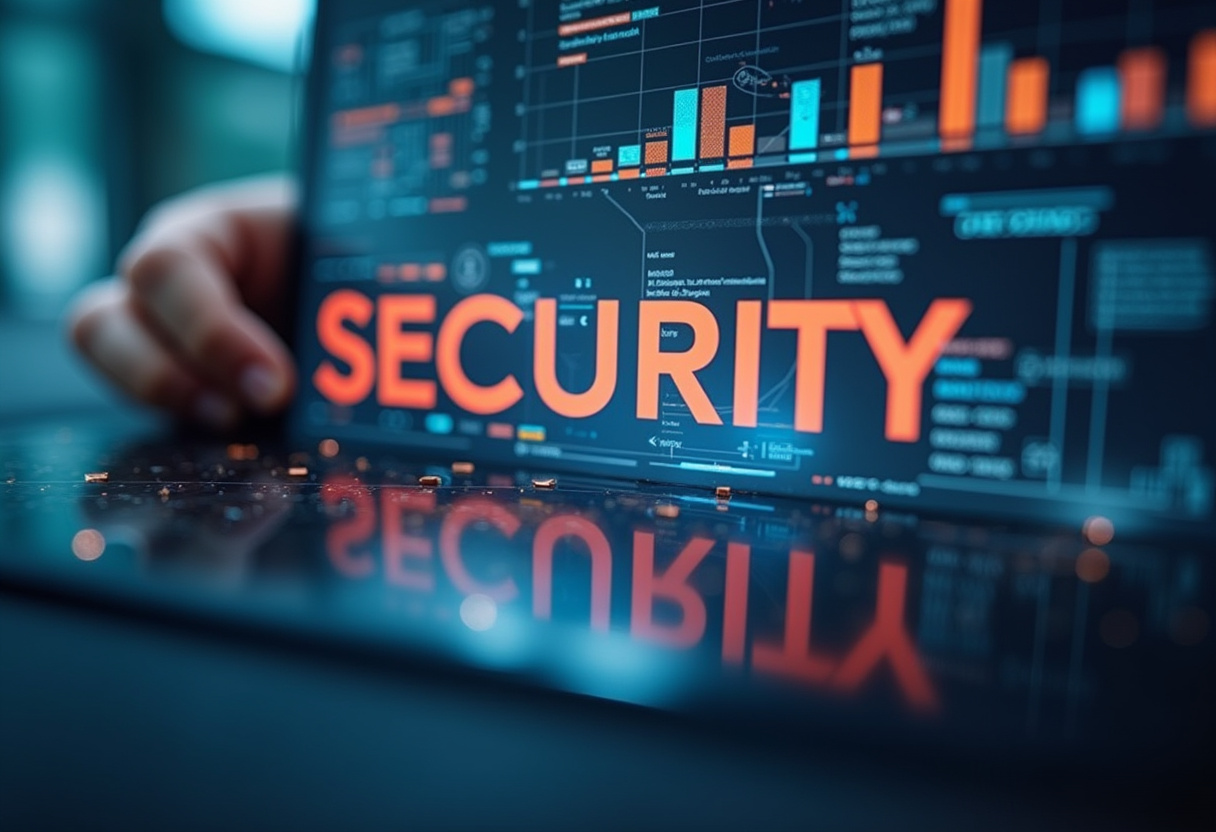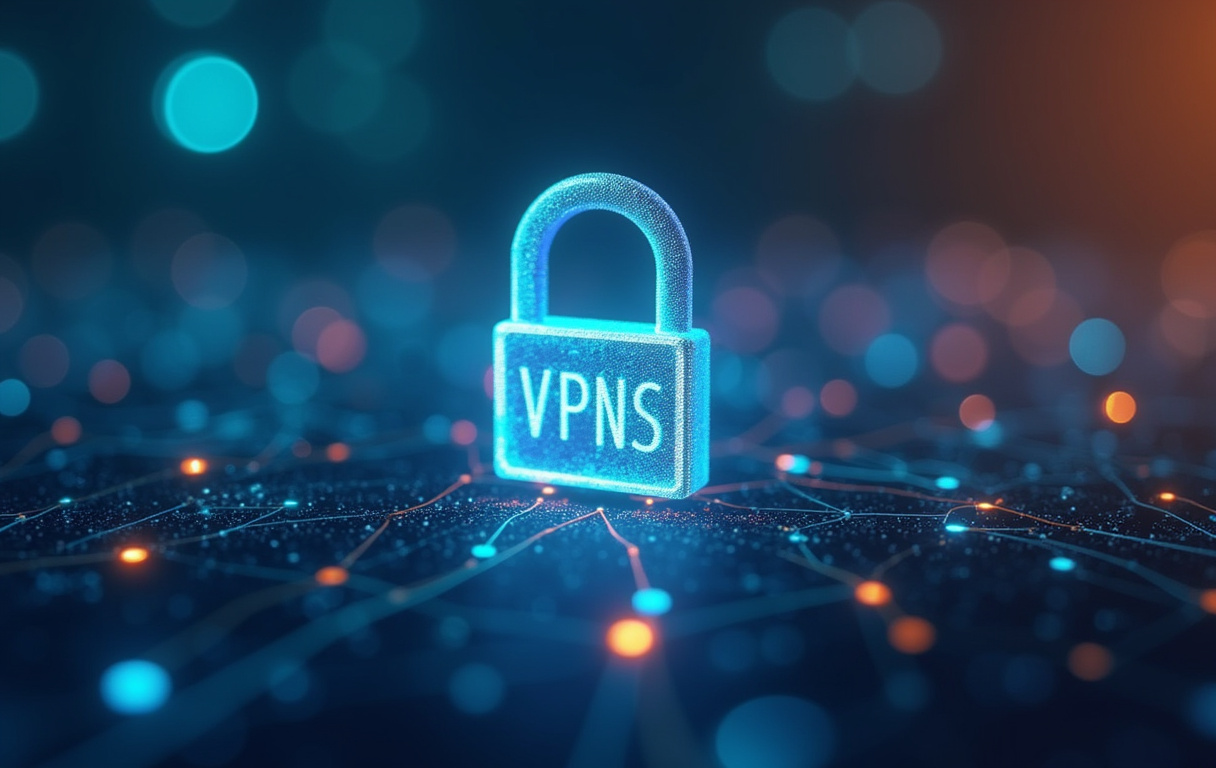VPNs for Construction Firms: Securing Project Blueprints
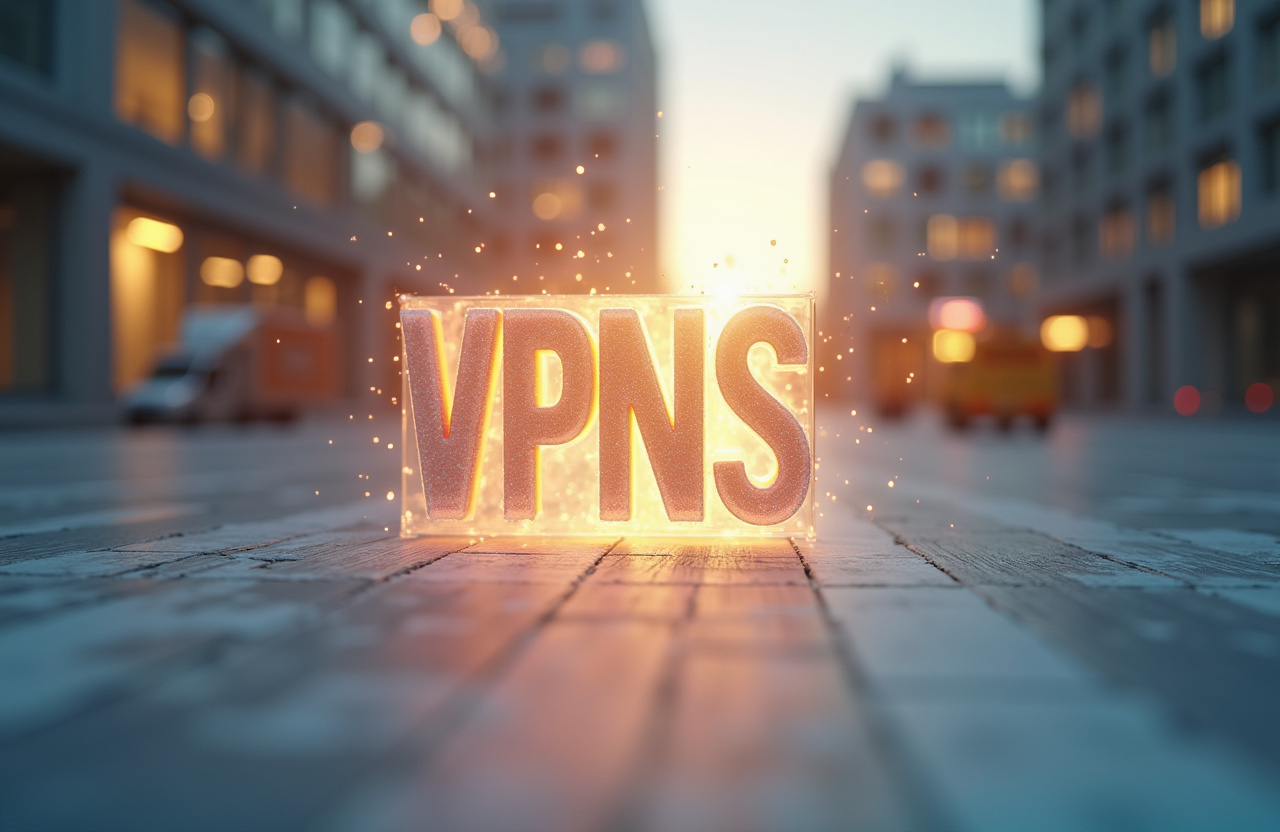
Table of Contents
The Critical Need for VPNs in Construction
In the dynamic landscape of modern construction, where intricate project blueprints and essential plans are digitally shared across vast networks and diverse devices, the criticality of impenetrable security measures has never been more evident. Construction firms, entrusted with the stewardship of multifaceted projects involving significant financial investments and highly sensitive data, are facing an ever-growing barrage of sophisticated cybersecurity threats. The escalating reliance on digital communication platforms, cloud-based storage solutions, and remote collaboration tools has inadvertently expanded the potential attack surface, rendering construction businesses increasingly susceptible to devastating data breaches, the theft of invaluable intellectual property, and crippling ransomware attacks.
These vulnerabilities can precipitate a cascade of detrimental consequences, including costly and disruptive project delays, substantial budget overruns, complex and expensive legal liabilities, and long-lasting damage to the firm's professional reputation. This comprehensive article will meticulously examine the pivotal role that Virtual Private Networks (VPNs) play in fortifying construction projects, with a distinct emphasis on bolstering overall project security, ensuring the unwavering protection of blueprints, upholding the absolute confidentiality of project plans, and elucidating the multifaceted benefits of implementing a robust and meticulously tailored VPN solution specifically designed to address the unique and evolving security demands of the construction industry. A thorough understanding of the inherent risks intertwined within the digital construction ecosystem, coupled with the proactive implementation of appropriate and effective security measures, will empower construction firms to safeguard their invaluable assets, maintain a sustainable competitive advantage in the marketplace, and ensure the successful, timely, and, above all, secure completion of their projects.
The meticulous and unwavering safeguarding of sensitive project data, particularly the detailed blueprints and comprehensive construction plans that form the bedrock of any construction endeavor, transcends mere IT considerations; it represents a fundamental and non-negotiable business imperative. A data breach involving these critically important, often proprietary, documents could unwittingly furnish competitors with invaluable insights into the firm's methodologies, processes, and innovations, potentially compromising the very integrity of the project and, in the worst-case scenario, even endangering the safety and well-being of workers actively engaged on the construction site. Therefore, it is absolutely imperative that construction firms adopt a holistic and comprehensive security strategy that seamlessly integrates multiple layers of robust protection, with VPNs serving as a vital and foundational cornerstone within the overall security architecture.
Construction firms must unequivocally acknowledge that cybersecurity is not a one-time, easily implemented fix but rather an ongoing, dynamic, and iterative process that demands continuous monitoring, unwavering adaptation to emerging threats, and sustained investment in both technology and human capital. A proactive and forward-thinking approach to security, coupled with meticulously designed employee training and comprehensive awareness programs, will effectively empower construction teams to readily identify and swiftly mitigate potential threats as they arise, thereby significantly reinforcing the overall security posture of the organization and fostering a culture of security consciousness throughout the firm. The strategic adoption of a specialized 'construction VPN' should be elevated from a mere optional enhancement to a baseline security requirement, a fundamental component of the firm's operational framework.
The potential ramifications of neglecting cybersecurity, the possibility of data breaches, intellectual property theft, and compromised project integrity, are simply too significant and far-reaching to be disregarded or minimized.
Understanding VPN Technology and Its Benefits
The construction industry's increasing dependence on an array of digital tools and sophisticated remote collaboration platforms has irrevocably transformed the operational landscape, creating a complex and multifaceted security environment that, unfortunately, makes it an increasingly attractive and lucrative target for malicious cybercriminals. Project blueprints, which contain intricate and often highly proprietary architectural designs, detailed engineering specifications, and meticulously crafted construction methodologies, alongside sensitive financial records and confidential client information, are all considered exceptionally valuable assets that desperately need consistent and comprehensive protection from unauthorized access, malicious tampering, and outright theft. A robust 'construction VPN' effectively addresses these critical security needs by providing a secure and heavily encrypted tunnel for all data transmission, thereby shielding sensitive information from the persistent prying eyes of cybercriminals and unauthorized individuals.
This robust level of security is particularly important and beneficial when employees are remotely accessing project data from geographically diverse locations, utilizing potentially insecure public Wi-Fi networks, or connecting through personal devices that often lack the same rigorous level of security protocols as the firm's well-protected corporate network. The paramount importance of steadfast 'blueprint protection' and unwavering 'plan confidentiality' cannot be overstated within the highly competitive construction industry. Blueprints themselves contain a vast collection of proprietary designs, innovative engineering specifications, and highly specialized construction methodologies, all representing a very significant investment of valuable time, substantial resources, and unique, often irreplaceable expertise.
Should these critical blueprints inadvertently fall into the wrong hands, unscrupulous competitors could readily exploit this strategically sensitive information to gain an unfair competitive advantage, implement aggressive pricing strategies to undercut the firm, or even, in a clear violation of intellectual property rights, directly replicate the designs for use within their own competing projects. Similarly, meticulously maintaining the absolute confidentiality of all project plans is fundamentally essential to proactively prevent any leaks of sensitive information that could potentially disrupt the carefully planned project schedule, compromise ongoing negotiations with crucial suppliers, or, in the most concerning scenarios, even inadvertently expose significant security vulnerabilities in the finished physical structure itself. A consistently reliable VPN unequivocally ensures that all data transmitted between employees working in diverse locations, subcontractors contributing specialized expertise, and clients providing essential requirements is thoroughly encrypted, making it virtually impossible for unauthorized parties to intercept and accurately decipher the sensitive information.
This critically important added layer of robust security provides invaluable peace of mind and effectively protects the firm's valuable intellectual property, sustains its hard-earned competitive advantage in the market, and safeguards its professional reputation from potentially devastating damage. Extending beyond simply protecting data while it is in transit between locations and users, a dedicated 'VPN for construction' can also play a critical role in securing sensitive data while it is at rest, stored on devices and servers. By implementing full-disk encryption on the hard drives of employee laptops and mobile devices, a VPN can help to effectively prevent unauthorized access to sensitive project data even if a device is unfortunately lost or stolen.
This is particularly vital and beneficial for construction firms that operate with a highly mobile workforce, where employees frequently need to access project data from an array of diverse and often unsecured locations. The consistent and strategic use of a VPN must be considered a fundamental best practice for absolutely any construction firm that handles sensitive project data, regardless of size or project complexity.
Implementing a VPN: Practical Considerations for Construction Sites
The practical implementation of a robust 'construction VPN' is, in most cases, not an overly complex or technically challenging undertaking; however, it undeniably necessitates extremely careful planning, meticulous configuration, and ongoing maintenance to ensure that the final solution effectively meets the specific and evolving security needs of the construction firm and its individual projects. The essential first step involves undertaking a comprehensive assessment of the firm's existing IT infrastructure, thoroughly identifying any potential security vulnerabilities that may be present, and clearly defining the overall scope of the VPN implementation project. This comprehensive assessment should include carefully determining which specific employees and devices will require VPN access for their daily tasks, meticulously identifying the distinct types of sensitive data that absolutely need to be protected with the utmost diligence, and establishing clear, unambiguous, and enforceable security policies and procedures for acceptable and secure VPN usage.
Once these critical requirements have been comprehensively defined and meticulously documented, the construction firm can then proceed with the vital selection process, carefully choosing a specific VPN solution that effectively meets its identified needs, aligns with its budgetary constraints, and seamlessly integrates with its existing IT ecosystem. There exists a diverse and ever-expanding range of VPN solutions available on the market today, spanning from relatively simple and straightforward software-based VPN applications to significantly more sophisticated and robust hardware-based VPN appliances designed for enterprise-level deployments. The ultimate choice of a particular VPN solution will inevitably depend on a confluence of factors, including the overall size of the construction firm, the inherent complexity of its underlying IT infrastructure, the specific level of security required to adequately protect its sensitive data, and the long-term scalability of the chosen solution to accommodate future growth and evolving security threats.
Following the careful and deliberate selection of a suitable VPN solution, the subsequent essential step involves the meticulous configuration of both the VPN server component and the client software that will be deployed to individual user devices. This configuration process invariably includes setting up individual user accounts with appropriately strong and unique passwords, carefully configuring the specific encryption protocols that will be used to protect data in transit, and defining granular access control policies that precisely determine which resources each user is authorized to access through the VPN connection. It is absolutely paramount to prioritize the selection and implementation of strong and up-to-date encryption protocols and to establish a rigorous schedule for regularly updating the VPN software to proactively protect against newly discovered and publicly disclosed security vulnerabilities.
After the VPN has been successfully configured and thoroughly tested, the next crucial step is to provide comprehensive and easily understandable training to all employees who will be utilizing the VPN on a regular basis. This training should include clear instructions on how to properly connect to the VPN, detailed guidance on how to accurately verify that the connection is indeed secure and encrypted, and effective troubleshooting steps for resolving commonly encountered problems or connection issues. Moreover, employees should be thoroughly informed about the construction firm's specific security policies and established procedures concerning VPN usage, including any restrictions on accessing certain categories of websites or downloading particular types of potentially malicious files.
Regular security audits and thorough penetration testing should be conducted on a consistent basis to proactively identify and effectively address any potential vulnerabilities that may exist in the VPN implementation or its underlying configuration. These proactive measures will collectively help to ensure that the VPN remains consistently effective in protecting sensitive project data from unauthorized access and that the firm's overall security posture remains robust and resilient in the face of evolving cybersecurity challenges.
Enhancing Security Through Logging, Audits and Employee Education
Beyond the core function of establishing a secure and encrypted communication channel, a 'construction VPN' offers a multitude of ancillary benefits that can significantly enhance the operational efficiency and overall security posture of a construction firm. One notable advantage is the ability to effectively bypass geographical restrictions and access location-specific resources as needed. In the context of multinational construction projects, where teams may be dispersed across various countries with differing levels of internet censorship or regulatory oversight, a VPN can enable seamless access to critical project data and resources that may otherwise be unavailable due to geographical limitations.
This can streamline communication, facilitate collaboration, and ensure that all team members have access to the information they need to perform their tasks effectively, regardless of their physical location. Furthermore, a VPN can also serve as a valuable tool for protecting against Distributed Denial of Service (DDoS) attacks, which are increasingly common and can disrupt or completely shut down a construction firm's online operations. By masking the firm's actual IP address and routing traffic through a secure VPN server, it becomes significantly more difficult for attackers to target the firm directly and overwhelm its systems with malicious traffic.
This can help to maintain business continuity and prevent costly downtime during critical project phases. Another significant advantage of implementing a 'VPN for construction' is the enhanced privacy it provides for employees and the firm as a whole. By encrypting all internet traffic and masking the firm's IP address, a VPN effectively prevents third parties, such as internet service providers (ISPs) or government agencies, from monitoring online activity or tracking user locations.
This can be particularly important in situations where employees are working on sensitive or confidential projects and need to protect their communications from potential eavesdropping or surveillance. In addition to these direct security and operational benefits, a VPN can also contribute to improving employee morale and productivity. By providing a secure and reliable connection to the firm's network, employees can work remotely with confidence, knowing that their data is protected and that they can access the resources they need without interruption.
This can lead to increased job satisfaction, reduced stress levels, and improved overall performance. The implementation of a 'construction VPN' should be viewed as an integral part of a broader cybersecurity strategy that encompasses a range of complementary security measures. These measures may include firewalls, intrusion detection systems, anti-virus software, multi-factor authentication, and regular security awareness training for employees.
A layered security approach provides the most comprehensive protection against a wide range of cybersecurity threats and helps to ensure that the construction firm's valuable assets are safeguarded against unauthorized access, theft, or damage. Finally, it is essential to regularly review and update the VPN configuration and security policies to ensure that they remain effective in protecting against evolving cybersecurity threats. The threat landscape is constantly changing, and new vulnerabilities are being discovered all the time.
By staying up-to-date on the latest security trends and proactively addressing potential vulnerabilities, construction firms can minimize their risk of being targeted by cybercriminals and maintain a strong security posture over the long term.
In conclusion, the integration of a robust and meticulously configured ''construction VPN'' represents a critical and indispensable investment for any modern construction firm operating in today's increasingly interconnected and threat-laden digital landscape. The imperative to safeguard sensitive project blueprints, maintain unwavering plan confidentiality, and fortify the firm's overall project security cannot be overstated, given the potential for devastating financial losses, reputational damage, and even legal repercussions resulting from data breaches and cybersecurity incidents. By establishing a secure and encrypted tunnel for all data transmission, a VPN effectively shields valuable project information from unauthorized access, malicious eavesdropping, and outright theft, particularly when employees are remotely accessing project data from geographically diverse locations using potentially insecure public Wi-Fi networks.
Moreover, beyond its core security functionalities, a ''VPN for construction'' delivers a wide array of supplementary benefits that contribute significantly to enhanced operational efficiency and improved employee productivity. The ability to bypass geographical restrictions, mitigate the impact of DDoS attacks, and ensure employee privacy are all highly valuable assets that can streamline project workflows, protect against disruptive cyberattacks, and foster a more secure and confident working environment. The implementation process, while requiring careful planning and meticulous configuration, is typically not overly complex and can be readily integrated into a construction firm's existing IT infrastructure with proper expertise and guidance.
However, it is absolutely essential to recognize that a VPN constitutes just one component, albeit a critical one, of a broader and more comprehensive cybersecurity strategy. A layered approach, incorporating robust firewalls, advanced intrusion detection systems, up-to-date anti-virus software, stringent access control policies, and mandatory multi-factor authentication, provides the most resilient defense against the ever-evolving spectrum of cybersecurity threats. Furthermore, ongoing employee training and security awareness programs are paramount in cultivating a security-conscious culture throughout the organization, empowering employees to readily identify and proactively mitigate potential risks before they can escalate into significant security incidents.
Regular security audits and penetration testing should be conducted on a consistent schedule to proactively identify and address any latent vulnerabilities in the VPN implementation or the overall security architecture, ensuring its continued effectiveness in the face of emerging threats. Construction firms must recognize that cybersecurity is not a static entity but rather a dynamic and continuous process that demands constant vigilance, adaptation, and investment. By remaining proactive, staying abreast of the latest security trends, and continuously refining their security practices, construction firms can minimize their exposure to cyber threats and maintain a robust and resilient security posture for the long term.
Ultimately, the strategic adoption of a well-implemented ''construction VPN'', coupled with a holistic and proactive cybersecurity strategy, will enable construction firms to protect their valuable assets, maintain a sustainable competitive advantage, and ensure the successful and secure completion of their projects in an increasingly challenging and interconnected world. Failing to prioritize cybersecurity and neglecting to implement appropriate security measures can have catastrophic consequences, jeopardizing not only the financial stability of the firm but also its long-term reputation and viability in the marketplace. Therefore, investing in a robust and well-managed cybersecurity solution, with a ''construction VPN'' as a cornerstone, is not simply an IT expense but rather a fundamental investment in the future success and security of the construction firm itself.
Stay Updated
Get the latest VPN news, tips, and exclusive deals to your inbox.
